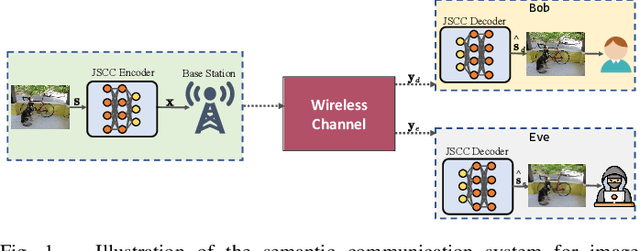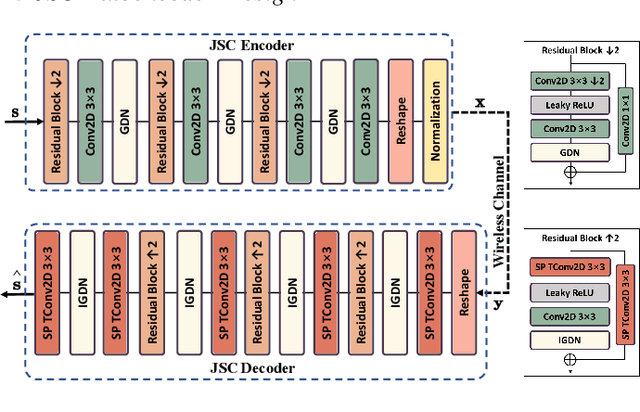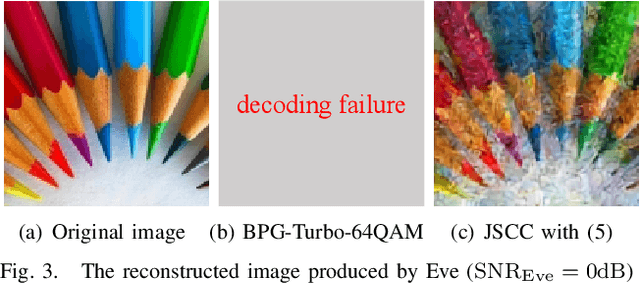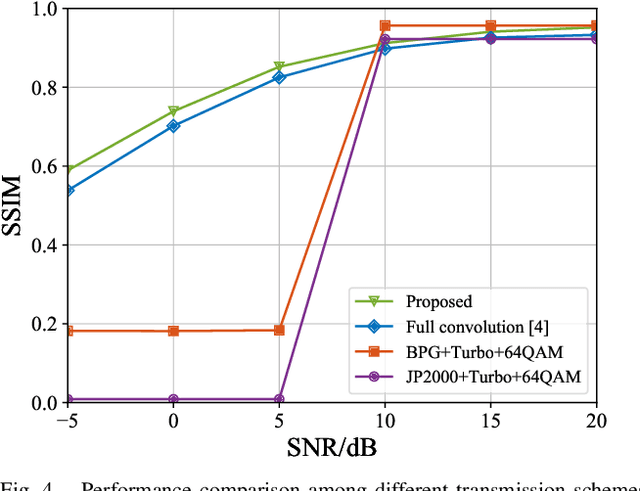Wireless Image Transmission with Semantic and Security Awareness
Paper and Code
Dec 01, 2022



Semantic communication is an increasingly popular framework for wireless image transmission due to its high communication efficiency. With the aid of the joint-source-and-channel (JSC) encoder implemented by neural network, semantic communication directly maps original images into symbol sequences containing semantic information. Compared with the traditional separate source and channel coding design used in bitlevel communication systems, semantic communication systems are known to be more efficient and accurate especially in the low signal-to-the-noise ratio (SNR) regime. This thus prompts an critical while yet to be tackled issue of security in semantic communication: it makes the eavesdropper more easier to crack the semantic information as it can be decoded even in a quite noisy channel. In this letter, we develop a semantic communication framework that accounts for both semantic meaning decoding efficiency and its risk of privacy leakage. To achieve this, targeting wireless image transmission, we on the one hand propose an JSC autoencoder featuring residual for efficient semantic meaning extraction and transmission, and on the other hand, propose a data-driven scheme that balances the efficiency-privacy tradeoff. Extensive experimental results are provided to show the effectiveness and robustness of the proposed scheme.
 Add to Chrome
Add to Chrome Add to Firefox
Add to Firefox Add to Edge
Add to Edge